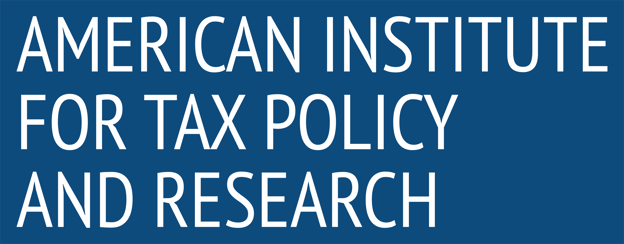AITPR's Essential Guide to Understanding Taxes
Introduction
Taxes play a crucial role in funding government services, from infrastructure and education to healthcare and national security. Understanding the tax system is essential for individuals, businesses, and policymakers alike. The American Institute for Tax Policy and Research (AITPR) provides this guide to help you navigate the complexities of taxation in the United States.
1. The Basics of Taxation
1.1 Types of Taxes
Taxes in the U.S. fall into several categories, including:
Income Taxes: Levied on individual and corporate earnings.
Payroll Taxes: Fund Social Security and Medicare.
Sales Taxes: Applied to goods and services at the point of purchase.
Property Taxes: Based on the value of real estate holdings.
Excise Taxes: Imposed on specific goods like fuel, tobacco, and alcohol.
Estate and Gift Taxes: Charged on the transfer of wealth.
1.2 Who Pays Taxes?
Individuals: Pay federal, state, and sometimes local income taxes.
Businesses: Subject to corporate income taxes, payroll taxes, and excise taxes.
Nonprofit Organizations: Generally exempt but may be subject to certain tax rules.
2. Federal Tax System
2.1 How the U.S. Tax System Works
The U.S. follows a progressive tax system, meaning higher income levels are taxed at higher rates. The Internal Revenue Service (IRS) administers tax collection and enforcement.
2.2 Tax Brackets and Rates
Each year, the IRS sets tax brackets for different income levels. Individuals and corporations pay taxes based on their earnings within these brackets.
2.3 Filing Requirements
Most individuals must file an annual tax return (Form 1040).
Businesses file separate returns, such as Form 1120 for corporations.
Self-employed individuals must make estimated tax payments quarterly.
3. State and Local Taxes
3.1 Variability Across States
State tax policies differ significantly, with some states having no income tax while others impose high tax rates. Additionally, local governments may levy property and sales taxes.
3.2 Common State Taxes
State Income Tax: Varies from 0% (e.g., Florida, Texas) to over 10% (e.g., California).
Sales Tax: Ranges from 0% (e.g., Oregon) to over 9% in some areas.
Property Tax: Determined by local governments and assessed annually.
4. Business Taxes
4.1 Corporate Income Tax
Corporations pay federal income tax at a flat rate of 21%, with additional state taxes where applicable.
4.2 Pass-Through Entities
Partnerships, S-corporations, and sole proprietorships pass business income directly to owners, who then pay individual income taxes on their share.
4.3 Payroll and Employment Taxes
Employers must withhold payroll taxes for Social Security, Medicare, and unemployment insurance.
5. Tax Credits and Deductions
5.1 Common Deductions
Standard Deduction: A fixed amount that reduces taxable income.
Itemized Deductions: Includes mortgage interest, medical expenses, and charitable contributions.
5.2 Tax Credits
Credits reduce taxes owed dollar for dollar and include:
Earned Income Tax Credit (EITC): Benefits low- to moderate-income workers.
Child Tax Credit (CTC): Provides relief for families with children.
Education Credits: Helps cover college expenses.
6. Tax Planning Strategies
6.1 Retirement Contributions
Contributing to tax-advantaged accounts like 401(k)s and IRAs can lower taxable income.
6.2 Capital Gains Management
Holding investments for more than a year results in lower long-term capital gains tax rates.
6.3 Charitable Giving
Donations to qualified charities can reduce taxable income when itemizing deductions.
7. Tax Compliance and Avoiding Penalties
7.1 Filing and Payment Deadlines
The standard deadline for filing individual taxes is April 15 each year.
Businesses may have different filing deadlines based on their structure.
7.2 Common Tax Mistakes
Underreporting income or failing to file on time can result in penalties.
Incorrect deductions or credits can trigger IRS audits.
7.3 IRS Audits and Disputes
The IRS may audit returns randomly or due to discrepancies.
Taxpayers have the right to appeal IRS decisions.
8. Future Tax Policy Changes
Tax laws frequently change due to legislative updates. Staying informed on upcoming reforms, such as proposed changes to corporate tax rates or income tax brackets, is essential for financial planning.
Conclusion
Understanding taxes is key to financial security and informed decision-making. Whether you are an individual taxpayer, a business owner, or a policymaker, staying up to date with tax laws and strategies can help optimize your financial situation. For more insights and the latest updates on tax policy, visit the American Institute for Tax Policy and Research website.


